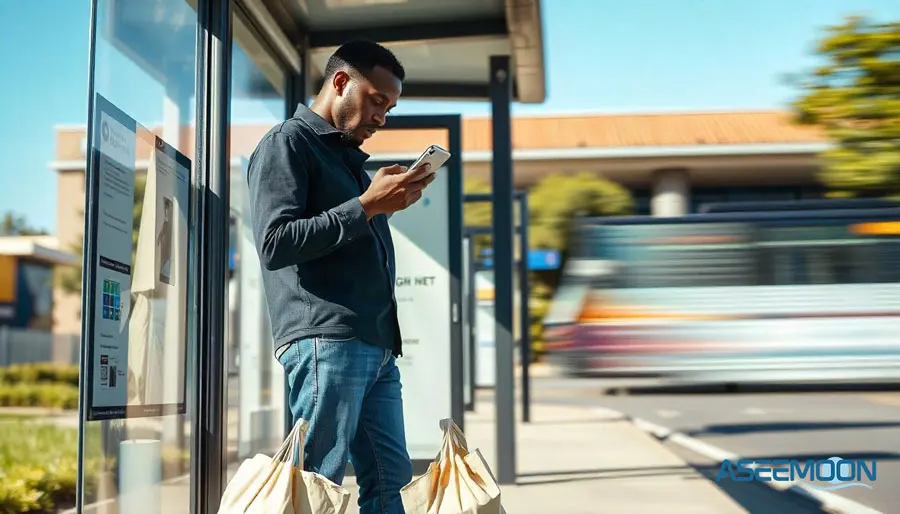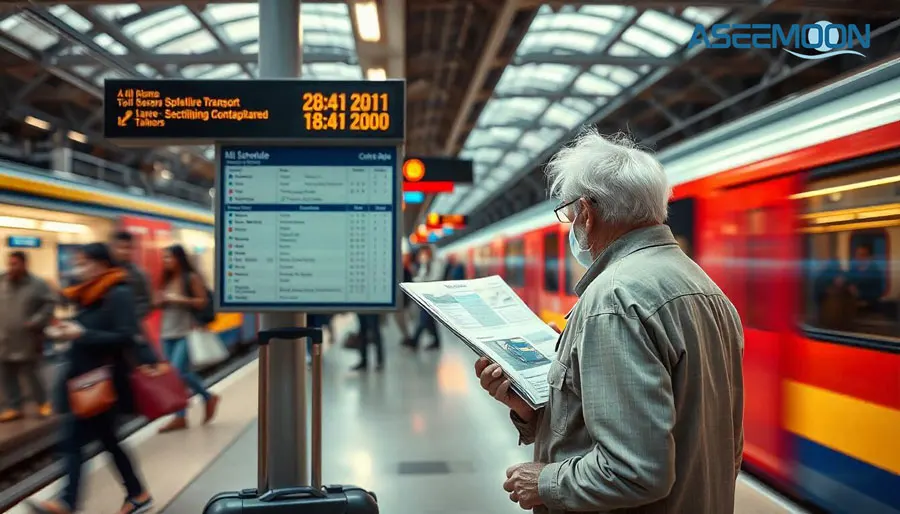Save money on transportation costs
Transportation costs can represent a significant portion of household expenses, but adopting smarter strategies can help cut your transport costs without compromising convenience or efficiency. For car owners, practices like regular maintenance, fuel-efficient driving, and lowering insurance costs are key. Non-car users can save money by relying on public transportation, walking, biking, or carpooling. College students, in particular, can leverage student discounts, ride-sharing, and campus-friendly transit options to manage transportation expenses effectively. This guide provides actionable tips for reducing commuting and travel costs while aligning with broader goals of reducing household expenses. Please stay with Aseemoon.
Reducing Transportation Costs Without a Car
If you don’t own a car, here’s how to save on transportation. These strategies are especially useful for students looking to save money on transportation in college:
#Tip1:Rely on Public Transportation
Public transport can slash costs by eliminating the need for fuel, parking, and maintenance.
- Buy Bulk Passes: Monthly or annual transit passes often come at discounted rates compared to single-use tickets.
- Leverage Discounts: Students, seniors, and low-income individuals can benefit from subsidized fares in many cities.
- Plan Efficiently: Apps like Transit or Citymapper help you navigate schedules and minimize delays.
#Tip2: Walk or Bike for Short Trips
Not all journeys require a vehicle. Walking and cycling offer health benefits and save money.
- Invest in a Quality Bike: A sturdy bike can pay for itself within months, reducing fuel and maintenance costs.
- Use Shared Bikes: Many cities have bike-sharing programs that are affordable and convenient.
- Walk When Possible: Walking is free and contributes to a healthier lifestyle.
#Tip3: Embrace Carpooling and Ridesharing
Sharing rides cuts fuel and maintenance costs while reducing traffic and emissions.
- Join local carpool networks or use platforms like BlaBlaCar, Waze Carpool, or Scoop.
- Use Uber Pool or Lyft Line for shared rides that are cheaper than solo trips.
- Create carpool schedules with coworkers or neighbors for consistent savings.
How to Save Money on Uber
Ridesharing services like Uber can be a convenient supplement to save money on public transport. To keep costs low:
- Share Rides: Choose Uber Pool to split the cost with others heading in the same direction.
- Use Promo Codes: Take advantage of promotional codes or discounts for first-time riders and special events.
- Avoid Peak Hours: Plan your rides to avoid surge pricing during busy times.
Reducing Transportation Costs with a Car
Owning a car can be expensive, but these strategies can help you manage and reduce costs:
#Tip4: Regular Vehicle Maintenance Saves in the Long Run
Preventative maintenance is essential for improving fuel efficiency and reducing the risk of costly repairs. Simple practices can significantly cut down on long-term transportation expenses.
- Check Tire Pressure: Maintaining proper tire inflation can improve gas mileage by up to 3%. Regularly checking your tires with a reliable gauge ensures optimal performance and saves on fuel costs.
- Change Oil and Filters: Following manufacturer recommendations for oil and air filter changes keeps your engine running smoothly and avoids expensive breakdowns.
- Learn Basic Repairs: Replacing wiper blades or air filters yourself is a simple and cost-effective way to maintain your vehicle.
Another effective strategy is to be smart about tire purchases. Save big money on tires by purchasing online through platforms like Tire Rack, Discount Tire, or Amazon. These websites often offer better prices than local stores, along with seasonal discounts and customer reviews to guide your choice. Many even provide mobile installation services, making it easier to save both time and money.
#Tip5: Optimize Your Driving Habits with Data-Backed Techniques
Efficient driving can reduce fuel consumption significantly.
- Drive Smart: Studies show that avoiding aggressive driving can improve fuel efficiency by 15-30% on highways and 10-40% in city driving.
- Reduce Idling: Up to 0.5 gallons of fuel are wasted every hour of idling. Turning off your engine while waiting is a simple way to save.
- Use Technology: GPS apps like Waze or Google Maps optimize routes and reduce time spent in traffic.
#Tip6: Switch to Fuel-Efficient or Alternative Vehicles
Investing in the right vehicle can save money over time.
- Hybrid and Electric Vehicles: Although the upfront cost is higher, savings on fuel and maintenance can be significant. Look for government incentives to offset initial expenses.
- Compact Cars: Smaller cars typically consume less fuel compared to larger vehicles.
- Use the EPA’s fuel economy tools to compare vehicles before buying.
#Tip7: Save Money on Car Insurance
Insurance can be a major expense, but there are ways to reduce it.
- Compare Providers: Use sites like The Zebra to find the best rates.
- Bundle Policies: Combine auto and home insurance for discounts.
- Drive Less: Many insurers offer discounts for low annual mileage.
#Tip8: Be Smart About Travel Planning
Reduce the costs of occasional travel with these strategies:
- Use Comparison Tools: Platforms like Kayak or Skyscanner find the best flight deals.
- Avoid Peak Times: Book tickets during off-peak hours for significant savings.
- Public Transport Abroad: Use trains, buses, and metros in international cities instead of renting cars.
#Tip9: Take Advantage of Telecommuting
Remote work is not just a time-saver—it’s a major cost-cutter.
- Work from Home: Reducing commuting days can save on gas, parking, and car wear and tear.
- Flexible Schedules: Even part-time remote work can provide noticeable savings.
#Tip10: Consider Alternatives to Car Ownership
Owning a car isn’t always necessary, especially in urban areas.
- Car Sharing Services: Programs like Zipcar or Getaround provide vehicles when you need them.
- Rely on Public Transit: If you live in a city with reliable save money on public transport, it’s often more economical.
- Bike Rentals or E-Scooters: These options are ideal for quick, short-distance trips.
How to Save Money on Car Rental
Rental cars are ideal when save money on public transportation isn’t practical. Here are ways to keep rental costs manageable:
- Compare Prices: Use online platforms like Kayak or Expedia to find the best deals on rental cars.
- Book in Advance: Early booking often comes with discounts, so plan whenever possible.
- Skip Airport Pickups: Renting away from the airport can save you from additional fees. Opt for a city location or a rental service near public transit.
FAQ
1. What’s the most effective way to save on fuel costs?
- Adopt fuel-efficient driving habits, use apps like GasBuddy to find affordable fuel, and maintain your vehicle regularly.
2. Is public transport always cheaper than driving?
- In most cases, yes. save money on Public transportation eliminates fuel, insurance, and maintenance costs, making it more affordable, especially in urban areas.
3. Are electric cars worth the investment?
- Electric vehicles can save significantly on fuel and maintenance, but you should weigh upfront costs against potential government incentives and long-term savings.
4. How can I reduce my car insurance costs?
- Compare quotes from multiple insurers, bundle policies, and maintain a clean driving record to qualify for discounts.
5. How do I know if car ownership is right for me?
- Assess your needs. If save money on public transportation, biking, or walking can meet your requirements, you might not need a car, saving you significant expenses.




